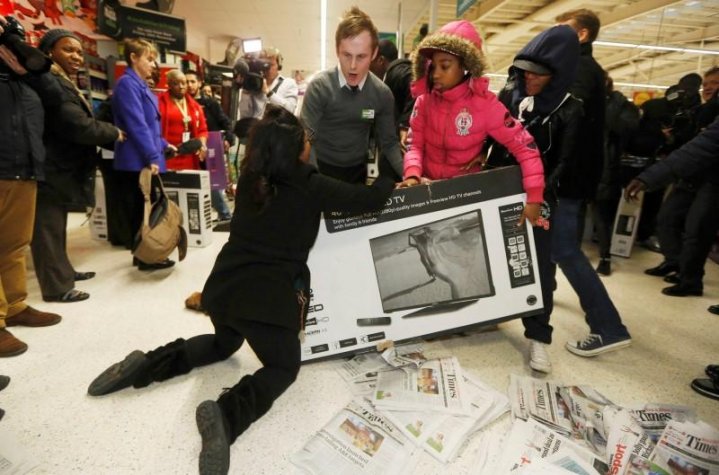
Black Friday has some very interesting origins, but for most, the day is all about buying things they have been eying for long.
But with increased awareness, many have now come to see the adverse effect of the day, especially on the environment.
Black Friday, which happens to be one of the busiest shopping days of the year, also has steadily been gaining negative publicity. The first image that comes to one's mind while talking about Black Friday is long serpentine queues and hoards of impatient crowd, ready to tear each other apart.
The trend now has become so negative that people have started a counter-culture to deal with this acute consumeristic culture - #BuyNothingDay.
The #BuyNothingDay trend straight away drives the point home and encourages positive consumerism.
And there definitely is a need for an anti-Black Friday movement.
Take, for example, over a dozen people have died since 2006 on Black Friday. From shooting in parking lots to stampedes, have taken place in the frenzy that surrounds this big shopping.
The fact that there exists a website - Black Friday Death Count, should in itself ring the alarm bells. The website states that over 12 people have died and 117 have been injured in Black Friday incidents since 2006.
There is also the fact that during the holidays there is an increase in debts. An average American racked up a debt of $1,230 in mainly holiday spendings such as Black Friday sale, according to Magnify Money.
Hence the stance taken by companies such as Fashion Revolution, Deciem, Christopher Raeburn, among many others, is commendable.
That said, there, however, also is a need to understand why people line-up for hours, and go through the mad rush only to fight over a consumer product. For many, Black Friday might be the only chance to things that they think they need, Kenneth Rogers, the associate dean of research in York University's School of the Arts told Vox.
"So blaming Black Friday shoppers for shopping sends a contradictory message. I think it's also class shaming. There are people who may need to line up to get that [discounted] appliance," Rogers observed.









